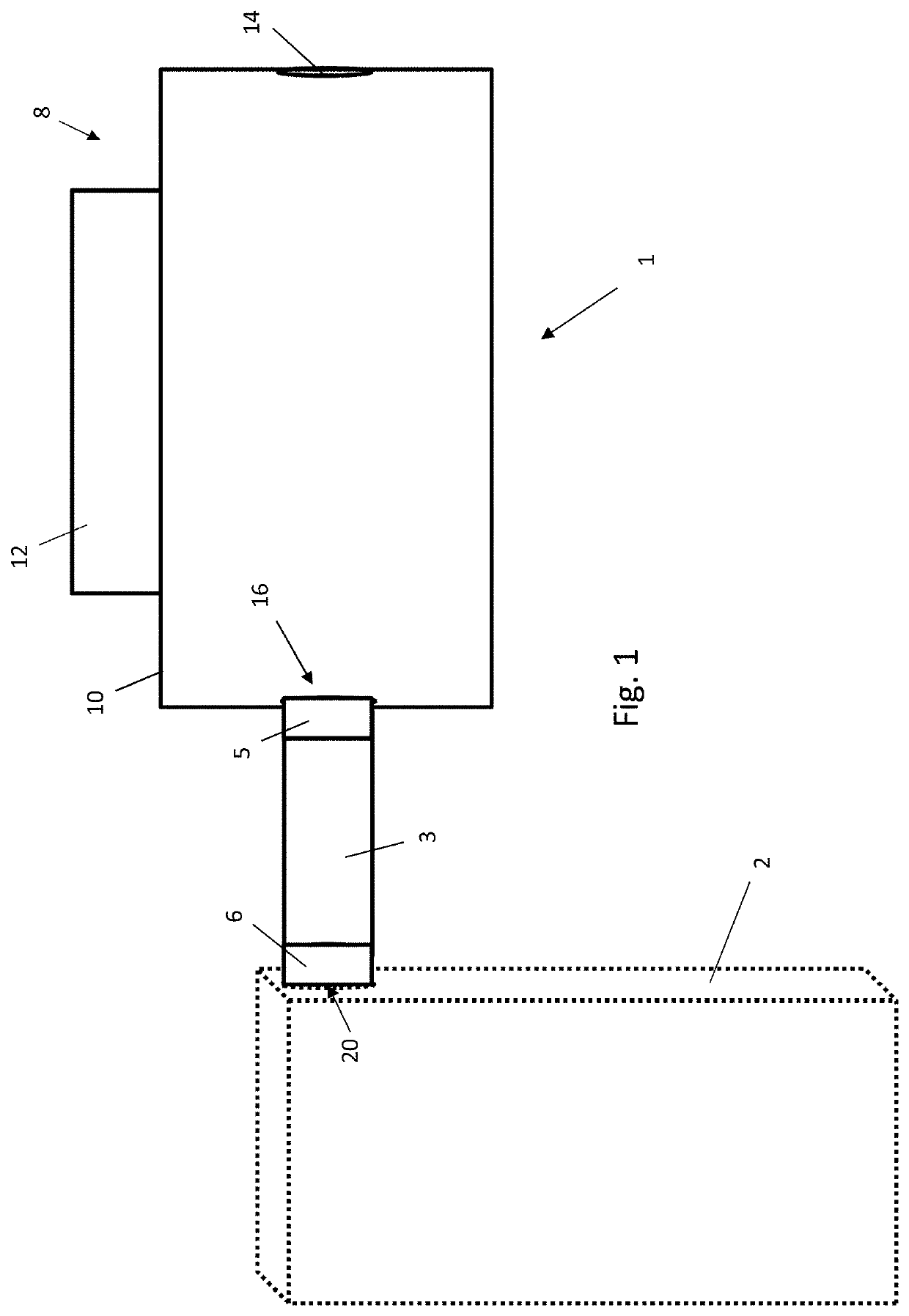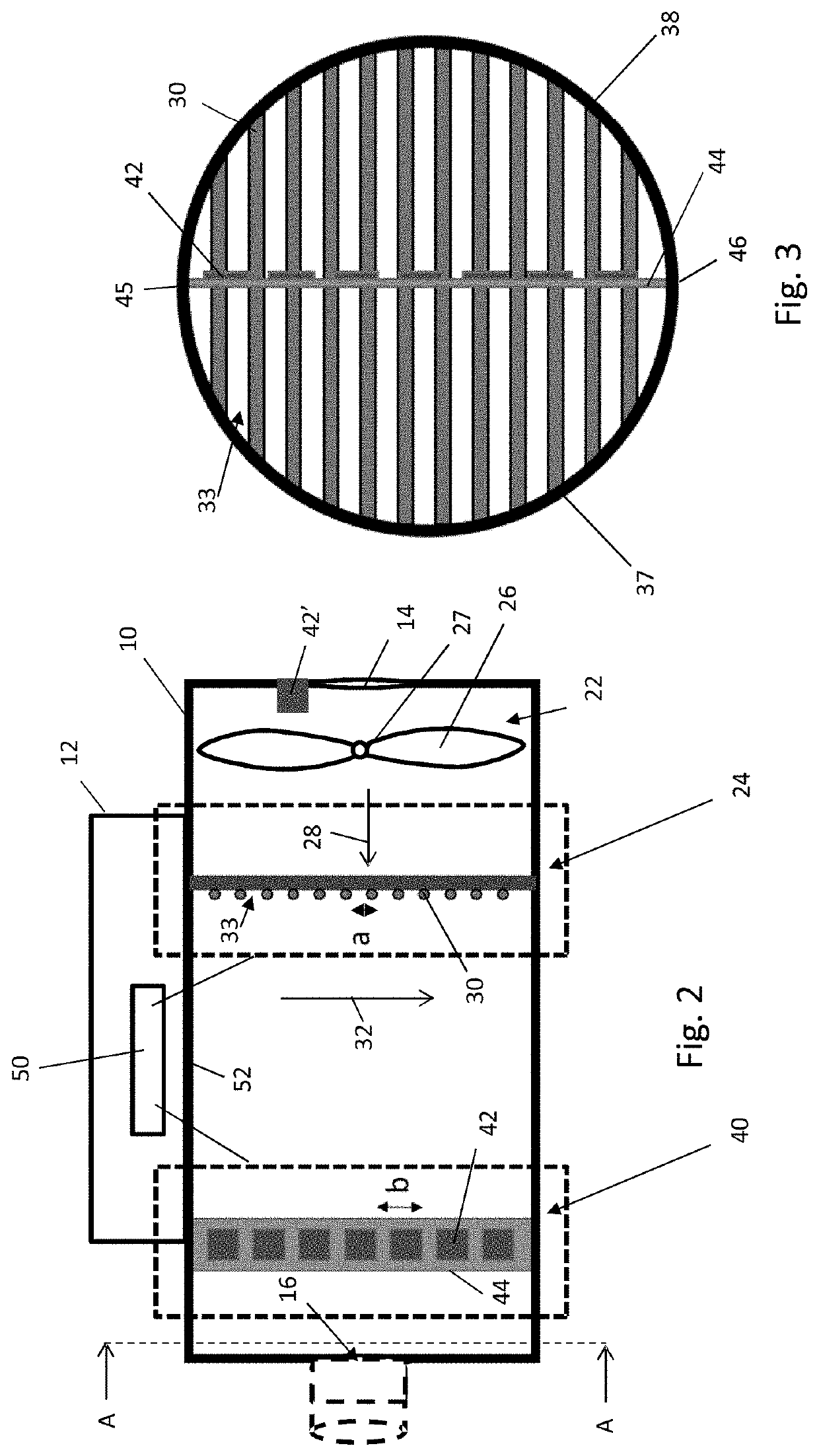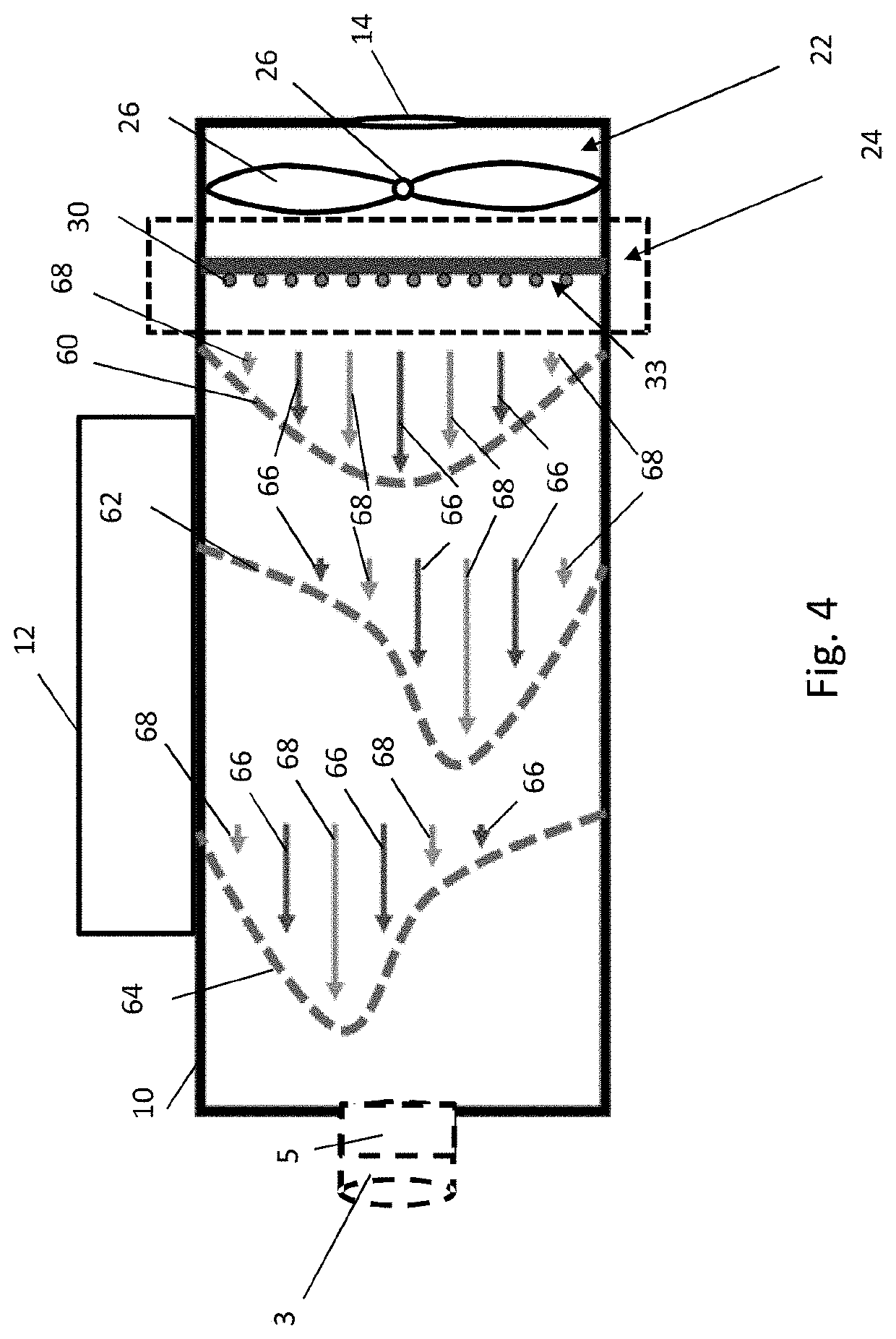Fluid warming apparatus
a technology of flue gas heating and heating apparatus, which is applied in the direction of electric heating, therapeutic heating, therapeutic cooling, etc., can solve the problems of significant error in the measurement of the temperature of the heated air flow close to the heater, unintentional increase of the temperature of the air provided to the patient, and insufficient temperature representation of the measured temperature. to achieve the effect of maintaining the accuracy of any calibration weighting
- Summary
- Abstract
- Description
- Claims
- Application Information
AI Technical Summary
Benefits of technology
Problems solved by technology
Method used
Image
Examples
Embodiment Construction
[0089]FIG. 1 is a block diagram showing a forced air warmer 1 fluidly coupled to a perforated blanket 2 by a flexible hose 3, the perforated blanket 2 being draped over a (typically human) patient (not shown) during a medical procedure or operation (typically when the patient is under a general anaesthetic). Air heated by the forced air warmer 1 is delivered to the blanket 2 through the hose 3. The blanket 2 contains a plurality of perforations (not shown) through which heated air received from the forced air warmer 1 is delivered to the patient to heat the patient by forced convection, thereby preventing the onset of unintentional hypothermia in the patient.
[0090]As shown in both FIGS. 1 and 2, the forced air warmer 1 comprises a housing 8 having a first hollow, cylindrical portion 10 (although it will be understood that the first housing portion 10 is not necessarily cylindrical) and a second portion 12 coupled to (or integrally formed with) the first portion 10, the first portion...
PUM
 Login to View More
Login to View More Abstract
Description
Claims
Application Information
 Login to View More
Login to View More - R&D
- Intellectual Property
- Life Sciences
- Materials
- Tech Scout
- Unparalleled Data Quality
- Higher Quality Content
- 60% Fewer Hallucinations
Browse by: Latest US Patents, China's latest patents, Technical Efficacy Thesaurus, Application Domain, Technology Topic, Popular Technical Reports.
© 2025 PatSnap. All rights reserved.Legal|Privacy policy|Modern Slavery Act Transparency Statement|Sitemap|About US| Contact US: help@patsnap.com



